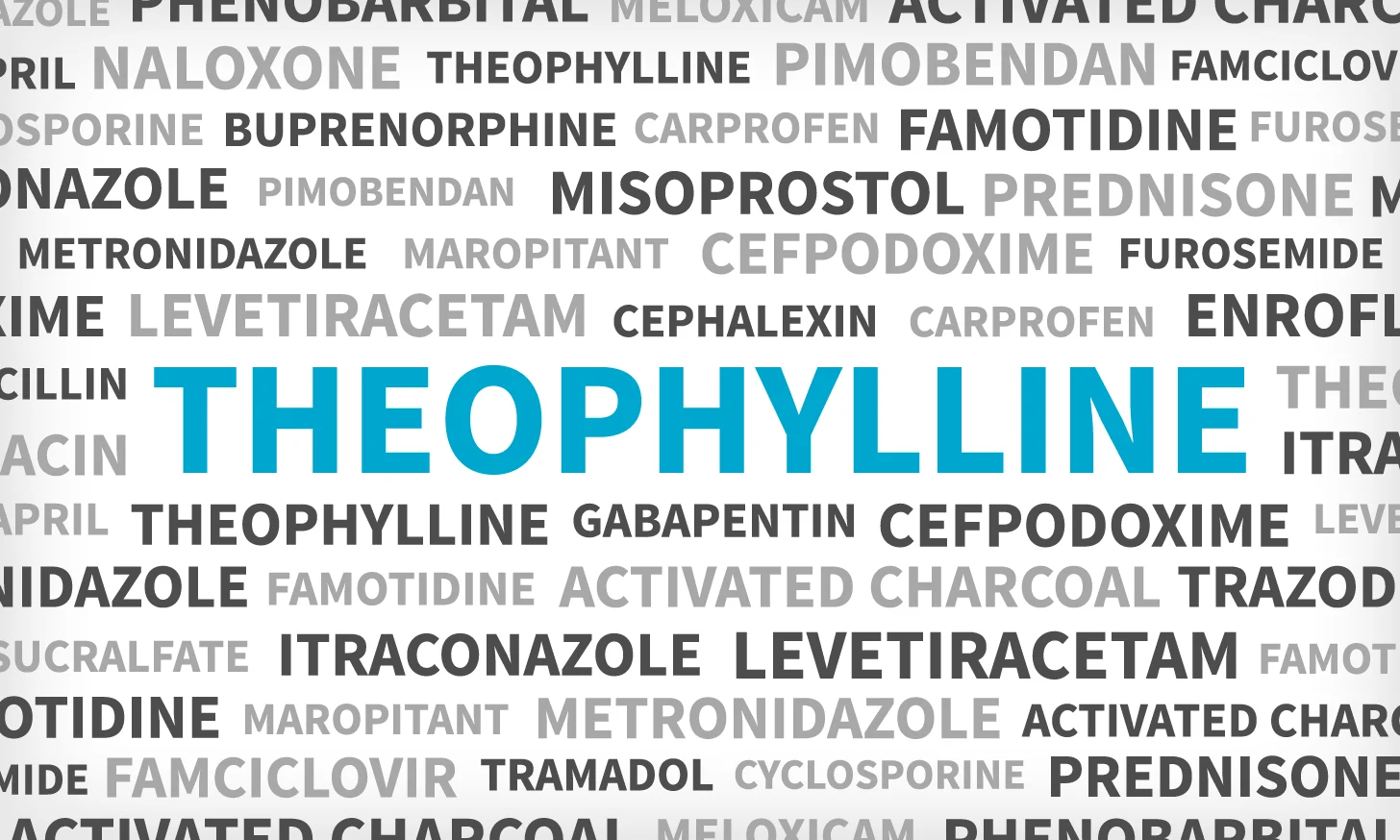Theophylline

Phosphodiesterase Inhibitor Bronchodilator
Prescriber Highlights
Bronchodilator used short-term to treat bronchospasm and cardiogenic pulmonary edema
Uses, Indications
Used primarily for bronchodilatory effects in coughing animals
Potentially beneficial in dogs with pulmonary arterial hypertension if the underlying cause is chronic obstructive pulmonary disease
Contraindications, Precautions, Warnings
Contraindications
Patients with hypersensitivity to any xanthine drugs, including aminophylline, theobromine, or caffeine
Precautions
Patients with severe cardiac disease, seizures, gastric ulcers, renal or hepatic disease, severe hypoxia, or severe hypertension
Warnings
May cause or worsen pre-existing arrhythmias
Side Effects
CNS stimulation
GI irritation
Polyphagia, polydipsia, and polyuria
Drug Interactions
Multiple drug interactions can occur, which can both increase and decrease the effects of theophylline
Additionally, theophylline can interact with several drugs (eg, benzodiazepines, propofol, ketamine), causing a decrease in efficacy of those drugs
Monitoring
Therapeutic efficacy and clinical signs of toxicity
Client Information
Giving with food may prevent stomach upset and vomiting
Do not crush the tablets
Dosage Forms
No veterinary-labeled products are available
Human-labeled products available for extra-label use include:
Theophylline capsules and tablets: 100 mg, 125 mg, 200 mg, 300 mg, 450 mg, 600 mg
Theophylline elixir: 80 mg/15 mL
—Compiled and summarized from Plumb’s Veterinary Drugs by Shannon Palermo, VMD
Information about this drug was adapted from Plumb’s Veterinary Drugs. Further details and more therapeutics can be found with a subscription at plumbsveterinarydrugs.com